Science & Society
Sign up for our newsletter
We summarize the week's scientific breakthroughs every Thursday.
-
 Tech
TechTo do: Exhibits to explore this May in D.C. and New York
Events include a celebration of science and original watercolor paintings from John James Audubon.
-
 Quantum Physics
Quantum PhysicsQuantum experts discuss the measurement problem: A transcript from 1994
A fairly complete transcript of a discussion about quantum physics on May 19, 1994, the last day of a workshop in Santa Fe, N.M., evolves into a more general discussion of the interpretation of quantum mechanics and the quantum measurement problem.
-
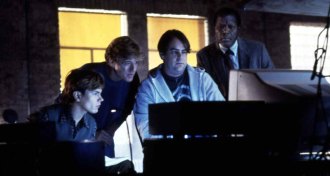 Quantum Physics
Quantum PhysicsRobert Redford film foretold Shor’s quantum computing bombshell
Twenty years ago, Peter Shor showed how quantum computers could break secret codes, turning the movie Sneakers from fiction to fact.
-
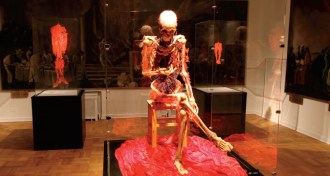 Health & Medicine
Health & MedicineSurgery museum holds wonders for the brave
Anatomical displays sit alongside art depicting medical history at the International Museum of Surgical Science.
By Sid Perkins -
 Science & Society
Science & SocietyMillions of working mamas
It has been a long time since millions of American women working outside the home was big sociological news. Women are now 47 percent of the U.S. workforce.
-
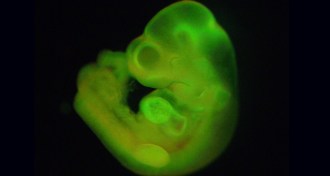 Science & Society
Science & SocietyMisconduct found in Japanese stem cell research
An investigation into reports describing a type of stem cells called STAP cells has found that the lead researcher is guilty of scientific misconduct.
-
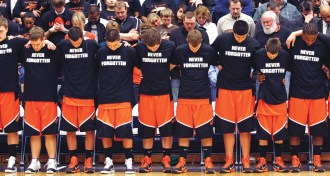 Health & Medicine
Health & MedicineSudden death
Cardiologists disagree on whether electrocardiograms should be used to screen student athletes for a rare heart condition that can cause them to die suddenly and without warning.
By Laura Beil -
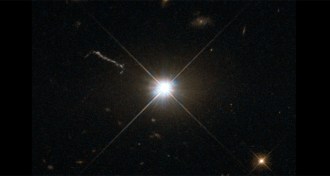 Cosmology
CosmologyTop 10 cosmological discoveries
The cosmic microwave background radiation has played a part in many of cosmology’s greatest discoveries.
-
 Science & Society
Science & SocietyStone throwers might toss fingerprints into police hands
An Israeli police lab is studying methods to develop fingerprints on rock to identify stone throwers.
-
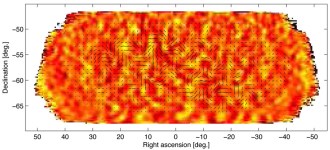 Cosmology
CosmologyInflation rides gravity waves into cosmological history
The discovery of gravity waves in the cosmic microwave radiation signals the success of inflationary cosmology.
-
 Science & Society
Science & SocietySlight boost for U.S. climate research funding
While most science funding remains flat lined in President Obama’s 2015 budget, climate change research gets an increase.
By Beth Mole -
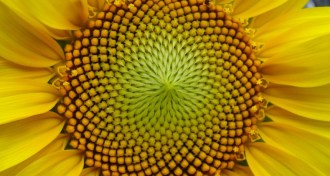 Science & Society
Science & SocietyTop 10 scientists of the 13th century
Modern science began to emerge in Western Europe centuries before the Scientific Revolution, thanks to a few scholars who were ahead of their time.